How is Alzheimer’s Diagnosed?
Intro
How is Alzheimer’s Diagnosed? Welcome aboard this blog, as I will look into Alzheimer’s and how healthcare professionals diagnose this debilitating condition.
Early detection is crucial to providing timely care and support for those suffering from Alzheimer’s.
However, healthcare professionals employ various methods to diagnose and confirm this progressive neurological disorder.
However, healthcare professionals utilize multiple ways to assess and ensure this progressive neurological disorder.
The scalp is usually taken for a thorough medical history and physical examination. Doctors derive valuable insights by analyzing the patient’s symptoms, duration and progression, and any family history of cognitive decline.
Additionally, they investigate possible endocrine issues or medication side effects that could contribute to cognitive impairment.
Although this evaluation provides essential clues, it does not guarantee an Alzheimer’s diagnosis.
Tools and techniques healthcare professionals employ to detect Alzheimer’s disease.
This blog explains how these diagnostic methods can help determine a patient’s condition, from cognitive testing to brain scanning.
Understanding how Alzheimer’s disease is diagnosed is hoped to increase awareness and encourage early intervention.
Join this journey with assuring as the diagnostic process for this debilitating disease is explored.
Introduction
How is Alzheimer’s Diagnosed? Alzheimer’s disease, which causes a progressive disorder that affects memory and cognitive functions, affects millions worldwide.
Detecting Alzheimer’s in its earliest stages can be challenging due to underlying symptoms that may coincide with age-related changes or other medical conditions.
However, healthcare professionals utilize several methods to diagnose this debilitating disease.
This outline presents a comprehensive review of these methods, which include clinical assessment, neuropsychological testing, neuroimaging techniques, cerebrospinal fluid analysis, genetic testing, and the potential role of machine intelligence and artificial intelligence.
These diagnostic instruments are crucial for early detection and intervention, enabling effective treatment and care planning for individuals affected by Alzheimer’s disease.
– The growing prevalence of Alzheimer’s disease
How is Alzheimer’s Diagnosed? Alzheimer’s disease, a progressive disorder affecting memory and cognitive functions, is a devastating condition rapidly expanding in society.
Detecting Alzheimer’s in its earliest stages can be challenging as the symptoms may overlap with those of regular age-associated changes or other medical conditions.
Nonetheless, healthcare professionals utilize several methods to diagnose this debilitating disease.
Doctors gather vital information about a patient’s symptoms, duration, progression, and family history of cognitive decline by conducting a thorough medical history, physical examination, and mental evaluation.
This initial assessment provides valuable insights, although it cannot necessarily identify Alzheimer’s as a definite diagnosis.
Nevertheless, it serves as a foundation for further diagnostic tools and processes.

– Importance of early and accurate diagnosis
How is Alzheimer’s Diagnosed? Identifying Alzheimer’s disease early and accurately is paramount due to its progressive and devastating nature.
Detection of Alzheimer’s at an early stage can grant individuals and their families valuable time to plan and prepare for the future.
Furthermore, it enables healthcare providers to create effective treatment plans and interventions that can decelerate the advancement of the illness and enhance the patient’s well-being.
Moreover, accurate diagnosis ensures that individuals receive the necessary support and resources, including access to specialized care and clinical trials.
Prompt identification and management of Alzheimer’s disease empower patients and their families to overcome challenges better and make informed decisions.
Clinical Assessment
How is Alzheimer’s Diagnosed? Alzheimer’s disease can be diagnosed through a clinical assessment.
By examining the patient’s cognitive functions and medical history, healthcare professionals can discover vital information and clues.
This assessment assists in identifying the difference between regular age-related changes and Alzheimer’s symptoms.
While clinical examination alone may not definitively determine a diagnosis, it is an essential initial step.
Healthcare professionals enlist their expertise and experience to assess potential cognitive impairments and establish the need for further testing.
A comprehensive assessment can facilitate an accurate diagnosis, resulting in appropriate treatment and care planning for those with Alzheimer’s disease.
– Overview of clinical assessment methods
How is Alzheimer’s Diagnosed? Clinical assessment plays an essential role in diagnosing Alzheimer’s disease.
Healthcare professionals typically begin by thoroughly examining a patient’s medical history and physical examination.
They attentively evaluate cognitive functions, looking for memory loss, language difficulties, maritime difficulties, and impaired judgment.
Additionally, the healthcare professional may investigate the patient’s family history of cognitive decline since this can provide valuable insight.
Despite these methodologies, diagnosing Alzheimer’s solely through clinical assessment can be challenging.
The symptoms associated with Alzheimer’s can sometimes overlap with those of normal aging or medical conditions.
Therefore, additional methods or tests are required to confirm a diagnosis definitively.
– Examination of cognitive functions and patient’s medical history
How is Alzheimer’s Diagnosed? Alzheimer’s disease requires a clinical assessment that examines the patient’s mental processes and medical history.
This assessment is used to test the individual’s memory, thinking abilities, language skills, and problem-solving abilities.
By examining the patient’s records, which may also include any previous cognitive decline or family history of Alzheimer’s disease, doctors can determine an accurate diagnosis.
However, it is essential to acknowledge that diagnosing Alzheimer’s disease solely through clinical assessment can be challenging as symptoms may resemble those of other medical conditions.
Hence, additional methods or tools are often employed to confirm the diagnosis.
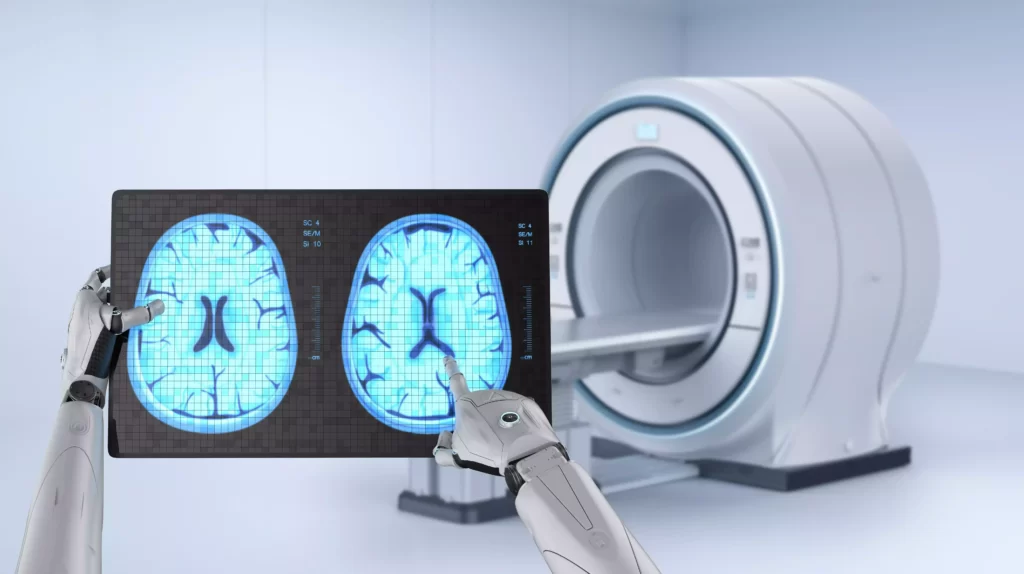
– Challenges in diagnosing Alzheimer’s disease solely through clinical assessment
How is Alzheimer’s Diagnosed? Challenges in diagnosing Alzheimer’s disease solely based on clinical assessment include that symptoms can be misdiagnosed or delayed due to age-related changes or other medical conditions.
Additional challenges have difficulty reporting symptoms or not fully comprehending the extent of cognitive decline.
Another challenge involves the subjective character of clinical assessment, as different healthcare professionals may view signs differently.
Moreover, early-stage Alzheimer’s symptoms may appear subtle and easily overlooked, requiring a comprehensive approach incorporating additional diagnostic tools to confirm the disease definitively.
Neuropsychological Testing
How is Alzheimer’s Diagnosed? Neuropsychological testing assists healthcare professionals in diagnosing Alzheimer’s disease.
Cognitive functions like memory, attention, language, and problem-solving are assessed through specialized tests.
These tests can offer helpful information about a person’s mental abilities. They can help differentiate between natural changes that come with aging and cognitive decline linked to Alzheimer’s disease.
By comparing a patient’s performance with standard norms, healthcare professionals can determine the severity and progression of Alzheimer’s disease.
Neuropsychological testing assists in early detection and accurate diagnosis, leading to better treatment planning and management of Alzheimer’s disease.
– Explanation of neuropsychological testing
How is Alzheimer’s Diagnosed? Neuropsychological testing is crucial for diagnosing Alzheimer’s disease.
This specialized form tests various aspects of cognitive function, including memory, attention, language, and problem-solving abilities.
Through several meticulously designed tests and tasks, neuropsychologists can assess the extent and pattern of cognitive impairment.
These tests assist in identifying age-related cognitive decline and Alzheimer’s disease-specific deficits.
By analyzing these assessments, healthcare professionals can gain valuable insights into the patient’s cognitive abilities, assisting in the accurate diagnosis of Alzheimer’s and recommending appropriate management strategies.
– Types of tests used to assess cognitive function
How is Alzheimer’s Diagnosed? Neuropsychological testing plays an essential role in diagnosing Alzheimer’s disease.
These tests, which trained specialists perform, assess an individual’s cognitive function, memory, language skills, and language skills, as well as problem-solving abilities.
They provide invaluable data by comparing the individual’s performance to predetermined norms for their age group.
Standard tests include the Mini-Mental State Examination (MMSE), Montreal Cognitive Assessment (MoCA), and Clock Drawing Test.
Through these tests, healthcare professionals can differentiate between regular age-related changes and the cognitive impairments associated with Alzheimer’s.
These tests are crucial in diagnosis, facilitating early detection and tailoring treatment plans for those diagnosed with this debilitating neurological disorder.
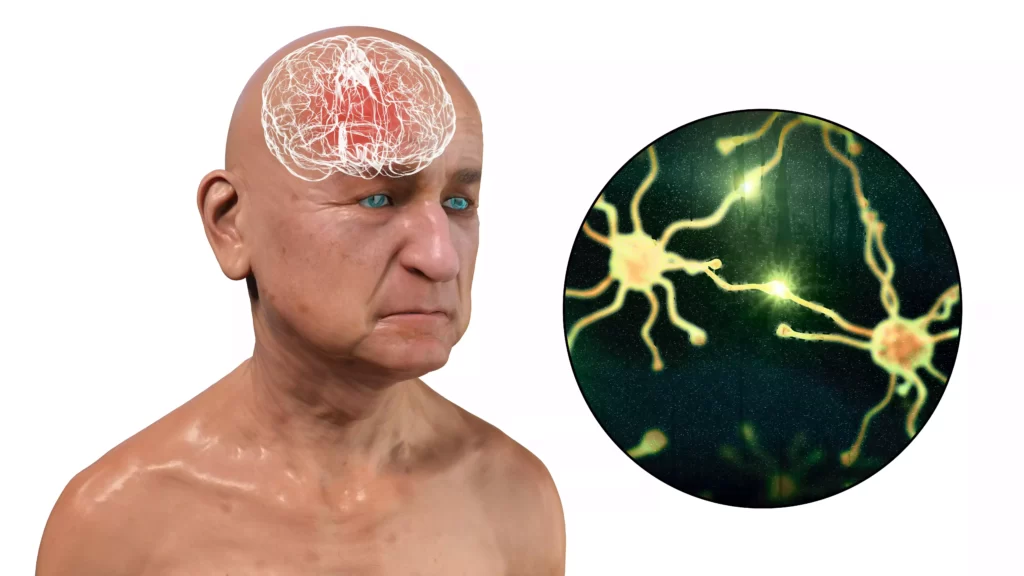
– Comparison of normal aging and Alzheimer’s disease symptoms through these tests
Neuropsychological testing is critical in determining Alzheimer’s disease.
How is Alzheimer’s Diagnosed? Through a series of tests, healthcare professionals can assess the cognitive function of individuals who are naturally aging versus those who may be diagnosed with Alzheimer’s disease.
These tests measure various cognitive abilities, including memory, attention, language, and problem-solving skills.
By comparing the performance of these tests, professionals can identify patterns that differentiate between normal aging and the cognitive decline attributed to Alzheimer’s disease.
This method assists in gaining a deeper understanding of the presence and severity of Alzheimer’s symptoms, allowing for earlier diagnosis and intervention.
Neuroimaging Techniques
How is Alzheimer’s Diagnosed? Neuroimaging techniques are crucial in diagnosing Alzheimer’s disease.
MRI and PET scans provide comprehensive brain images, enabling healthcare professionals to detect structural changes and abnormal brain activity characteristic of Alzheimer’s disease.
These imaging technologies assist in distinguishing Alzheimer’s from other conditions that exhibit similar symptoms.
Furthermore, specific biomarkers, such as amyloid plaques and tau proteins, can be detected through neuroimaging.
Neuroimaging provides objective evidence that can aid in an Alzheimer’s diagnosis, thus ensuring its accuracy and reliability.
Despite its advantages, neuroimaging has some limitations, such as cost and availability. However, it remains an indispensable tool in the professional diagnosis of Alzheimer’s disease.
– The role of neuroimaging in Alzheimer’s disease diagnosis
How is Alzheimer’s Diagnosed? The use of neuroimaging is crucial in diagnosing Alzheimer’s disease.
Utilizing techniques like MRI and PET scans, healthcare professionals can look at the brain for any structural and functional changes indicative of Alzheimer’s disease.
These images offer valuable insights into the extent and progression of Alzheimer’s disease.
Additionally, specific biomarkers indicative of Alzheimer’s can be detected through neuroimaging, facilitating accurate diagnosis.
By utilizing these advanced technologies, healthcare professionals are empowered to accurately identify Alzheimer’s disease and distinguish it from other cognitive disorders, effectively allowing timely intervention and management of this debilitating condition.
– Overview of different neuroimaging techniques (MRI, PET scan, etc.)
How is Alzheimer’s Diagnosed? Neuroimaging techniques are crucial in diagnosing Alzheimer’s disease.
These techniques give healthcare professionals valuable insights into the brain’s structure and function.
A magnetic resonance image (MRI) is widely used to diagnose structural abnormalities and measure changes in brain volume.
It provides detailed images that assist in excluding other causes of cognitive decline.
PET is another powerful tool that can identify biomarkers linked to Alzheimer’s, such as beta-amyloid plaques.
PET scans can confirm the presence of these markers, thereby enabling a more accurate diagnosis.
By utilizing various neuroimaging methods, healthcare professionals can better identify the tell-tale signs of Alzheimer’s disease.

– Identification of specific biomarkers associated with Alzheimer’s disease
How is Alzheimer’s Diagnosed? Identifying the specific biomarkers of Alzheimer’s disease is vital for the diagnosis.
Using advanced neuroimaging technologies like MRI and PET scans, healthcare professionals can discern clear structural and functional brain changes characteristic of Alzheimer’s.
These changes can include the appearance of amyloid plaques and tau tangles, regarded as hallmarks of the disease.
Furthermore, biomarkers such as the levels of specific proteins in the cerebrospinal fluid can offer essential insights into the presence and progression of Alzheimer’s.
Identifying these biomarkers is crucial for confirming the diagnosis and monitoring the progress of Alzheimer’s disease over time.
Cerebrospinal Fluid Analysis
How is Alzheimer’s Diagnosed? Cerebrospinal fluid analysis plays a significant role in diagnosing Alzheimer’s disease.
This method involves examining specific biomarkers present in the CSF, such as amyloid-beta and tau proteins.
These biomarkers can provide valuable insight into the presence and progression of Alzheimer’s disease.
However, CSF analysis carries its challenges and limitations, including the invasive nature of the procedure itself as well as the potential for false-positive or false-negative results.
Nevertheless, when used alongside other diagnostic techniques, CSF analysis can improve the accuracy of Alzheimer’s diagnosis and provide appropriate treatment and results-oriented planning for those afflicted by this debilitating disease.
– Explanation of cerebrospinal fluid and its role in diagnosing Alzheimer’s disease
How is Alzheimer’s Diagnosed? Cerebrospinal fluid analyses are essential for the diagnosis of Alzheimer’s disease.
Cerebrospinal fluid can be seen to encompass and protect the brain and spinal cord.
In individuals with Alzheimer’s, specific biomarkers, including amyloid-beta and tau proteins, can be identified in the cerebrospinal fluid.
These biomarkers offer essential insights into the presence and progression of the disease.
However, this method comes with challenges and limitations, such as the invasiveness of the procedure and the need for specialized equipment.
Furthermore, the interpretation and reporting of biomarker results can be complex, and false-positive or false-negative results can occur.
Nonetheless, cerebrospinal fluid analyses remain valuable in diagnosing Alzheimer’s disease.
– Analysis of specific biomarkers in the cerebrospinal fluid
How is Alzheimer’s Diagnosed? One method of diagnosing Alzheimer’s disease involves analyzing particular biomarkers in the cerebrospinal fluid.
The cerebrospinal fluid contains a clear liquid surrounding the brain and spinal cord.
Researchers have discovered particular biomarkers, such as amyloid beta and tau proteins, that are closely linked with the onset of Alzheimer’s.
By examining the levels and distribution of these biomarkers in the cerebrospinal fluid, healthcare professionals can determine the presence and progression of Alzheimer’s disease.
Nonetheless, this method comes with challenges and shortcomings, requiring an invasive lumbar puncture to collect cerebrospinal fluid and posing the potential for false positives or negatives.

– Challenges and limitations of this method
How is Alzheimer’s Diagnosed? Cerebrospinal fluid analysis is one of the diagnostic methods used to detect Alzheimer’s disease.
It involves examining specific biomarkers in the cerebrospinal fluid to identify signs of Alzheimer’s disease.
Nevertheless, this method comes with its challenges and limitations.
One challenge must be addressed is the procedure’s invasiveness, which calls for a lumbar puncture to obtain a cerebrospinal fluid sample.
Interpretation of the results may be complex, as other conditions can affect the biomarker levels of Tagen.
Moreover, this method can be costly and is only widely available to some patients. Hence, while cerebrospinal analysis can serve as a valuable diagnostic tool, it is essential to consider its challenges and limitations when evaluating Alzheimer’s disease.
Genetic Testing
How is Alzheimer’s Diagnosed? Alzheimer’s disease diagnosis heavily relies on genetic testing.
This helps healthcare providers to pinpoint specific genetic markers linked to a higher likelihood of developing the condition.
This method, such as APEO gene testing, helps determine whether an individual carries particular genes associated with Alzheimer’s disease.
By analyzing genetic factors, clinicians can gain valuable insights into an individual’s risk profile, which aids in early detection and intervention.
However, it’s important to point out that genetic testing alone cannot diagnose Alzheimer’s disease definitively as other factors and tests are required to confirm.
Genetic testing and other diagnostic techniques assist healthcare professionals in developing customized treatment plans and providing appropriate care for those affected by this debilitating neurological disorder.
– Importance of genetic factors in Alzheimer’s disease diagnosis
Genetic testing is a crucial part of the diagnosis of Alzheimer’s disease.
It allows physicians to assess the role of genetic factors in predicting an individual’s risk of acquiring Alzheimer’s.
Through genetic methods like APOG testing, specific genetic markers associated with a higher risk of Alzheimer’s can be determined.
This information can help with a more accurate diagnosis and predict the likelihood of acquiring the disease.
Understanding the genetic variables at play allows healthcare professionals to plan better and implement treatment plans for patients with Alzheimer’s disease, which will lead to an improved quality of life and care outcomes.
– Overview of genetic testing methods (APOE gene testing, etc.)
How is Alzheimer’s Diagnosed? Alzheimer’s disease can be diagnosed through genetic testing. One prominent technique is APOE gene testing, which examines specific genes linked to Alzheimer’s risk.
By analyzing a specific genetic marker, healthcare professionals can predict an individual’s likelihood of acquiring Alzheimer’s disease.
While inconclusive, this information offers valuable insights into an individual’s predisposition to Alzheimer’s.
Genetic testing and other diagnostic devices allow healthcare professionals to perform more accurate assessments and tailor-made treatment plans for patients.
This technique is a notable breakthrough in Alzheimer’s diagnosis, allowing for prompt intervention and treatment of the illness.
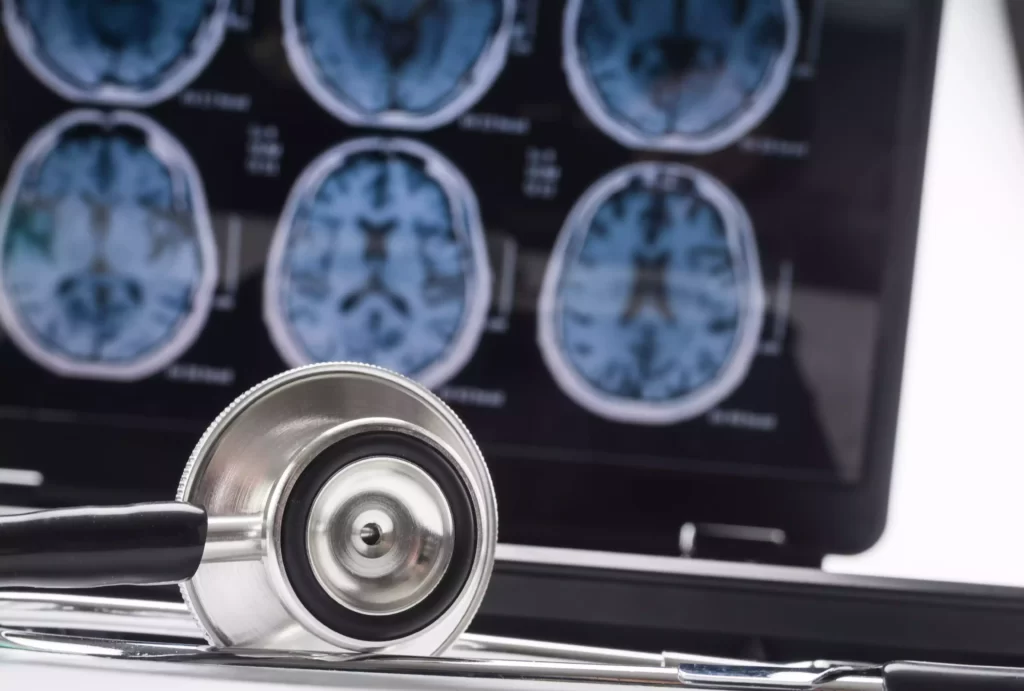
– Identification of specific genetic markers associated with increased risk
Identifying specific genetic markers associated with increased risk is essential for diagnosing Alzheimer’s disease.
Alzheimer’s disease is caused by genetic factors that contribute significantly to its development.
Advanced genetic test methods, such as APEO gene testing, enable healthcare professionals to pinpoint genetic markers associated with an elevated risk of Alzheimer’s.
By analyzing the features, doctors can determine a patient’s susceptibility to Alzheimer’s and predict how likely a patient will develop it.
This information will aid in early detection and enable medical professionals to provide individualized care and support to those at risk of developing Alzheimer’s disease.
Machine Learning and Artificial Intelligence
How is Alzheimer’s Diagnosed? The diagnosis of Alzheimer’s disease has been revolutionized by machine learning (ML) and artificial intelligence (AI).
These advanced technology solutions are promising for early detection and accurate disease prediction.
Machine learning systems can use algorithms and modeling to analyze data and detect patterns and biomarkers that indicate the presence of Alzheimer’s disease.
It improves diagnostic accuracy and enables healthcare professionals to intervene earlier when treatments may be more effective.
However, addressing these technologies’ ethical considerations and privacy concerns is crucial.
Collaboration and symbiotic approaches are vital to ensure that machine learning and AI are used sensibly for diagnosing and managing Alzheimer’s disease.
– Overview of algorithms and models used for early detection
In the world of Alzheimer’s disease diagnosis, machine learning and artificial intelligence have gained a prominent role in enabling early detection.
These technologies employ algorithms and models that analyze complex data sets, such as brain imaging and genetic information, to detect patterns indicative of Alzheimer’s.
By analyzing these patterns, healthcare professionals can anticipate Alzheimer’s disease before those symptoms manifest.
Despite offering promising results, there are still limitations to be considered.
These include a need for more extensive and diverse data sets, potential biases in the algorithms, and the importance of human expertise in the decision-making process.
– Potential benefits and limitations of using these technologies
How is Alzheimer’s Diagnosed? The use and adoption of machine learning and AI in the diagnosis of Alzheimer’s disease hold potential benefits in the field of healthcare.
These technologies can analyze vast quantities of medical data, including genetic information and brain imaging, to identify patterns and predict the likelihood of acquiring the disease.
By detecting biomarkers and risk factors, AI can assist in early detection and intervention, potentially improving outcomes for those with Alzheimer’s disease.
Nevertheless, these technologies need to be acknowledged and utilized correctly.
Ethical considerations, data security, and the risk of misdiagnosis are crucial factors that must be thoroughly analyzed and addressed when using machine learning and AI in Alzheimer’s disease diagnosis.
Future Directions and Challenges
How is Alzheimer’s Diagnosed? There are promising future directions and challenging challenges when diagnosing Alzheimer’s disease.
Researchers are evaluating innovative approaches, such as incorporating biomarkers and genetic testing, to improve diagnostic accuracy.
Furthermore, machine learning combined with artificial intelligence shows potential for early detection.
Nevertheless, ethical concerns regarding the privacy and security of these advanced technologies must be thoroughly addressed.
Collaboration between healthcare experts, researchers, and technologists is crucial to overcome these challenges and advance diagnostic methods.
By integrating disciplinary approaches, cognitive science can help facilitate comprehensive and accurate diagnoses, thereby ensuring effective treatment and care planning for those affected by Alzheimer’s disease.

– Promising areas of research in Alzheimer’s disease diagnosis
How is Alzheimer’s Diagnosed? Several promising research areas offer the potential for accurate and early detection of Alzheimer’s disease.
One such advancing area is the development of biomarkers, such as specific proteins or genetic markers, that can detect Alzheimer’s disease.
Furthermore, advanced imaging technologies such as positron emission tomography (PET) scans are being utilized to identify the characteristic brain changes associated with Alzheimer’s disease.
Scientists are investigating how artificial intelligence and machine learning algorithms analyze complex data sets and develop diagnostic tools.
As these avenues progress, there is hope for improved diagnostic accuracy and earlier interventions for individuals with Alzheimer’s.
– Ethical considerations and privacy concerns in utilizing advanced technologies
How is Alzheimer’s Diagnosed? Advanced technologies have proven to be very promising when it comes to diagnosing Alzheimer’s disease.
However, it is essential to consider the ethical considerations and privacy concerns that arise from these tools.
As healthcare practitioners explore advanced technologies, such as genetic testing or brain imaging, ensuring patient confidentiality and privacy becomes imperative.
Striking a balance between leveraging these technologies to diagnose and safeguard patients’ rights and autonomy accurately is essential.
Professionalism and observance of ethical standards should be the foundation for any practices utilizing advanced technologies in Alzheimer’s diagnosis.
– Recap of the different methods and tools used to diagnose Alzheimer’s disease
Healthcare professionals employ several methods and tools to diagnose Alzheimer’s disease accurately.
The diagnostic procedure typically involves a thorough medical history and physical examination, which includes symptoms, progression, family history, potential upcoming health issues, or medication side effects.
Additional tests like cognitive assessments, blood tests, brain imaging scans, and genetic testing may be performed.
Effective treatment and care planning for individuals with Alzheimer’s relies on accurate diagnosis.
By embracing these diverse techniques and tools, healthcare professionals can aim to provide the best possible care for those with Alzheimer’s disease.
Conclusion
In conclusion, How is Alzheimer’s Diagnosed? Diagnosing Alzheimer’s requires a comprehensive approach incorporating various methods and tools.
Clinical assessment, neuropsychological testing, neuroimaging techniques, cerebrospinal fluid analysis, genetic testing, and emerging technologies such as machine learning and artificial intelligence for accurately diagnosing Alzheimer’s disease.
As healthcare practitioners, it is essential to keep abreast of the latest advancements in Alzheimer’s diagnosis and work closely with specialized teams.
Aiming for early diagnosis, timely intervention, customized care planning, and improved outcomes can be achieved for individuals and their families affected by this challenging disease.








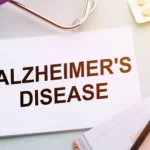




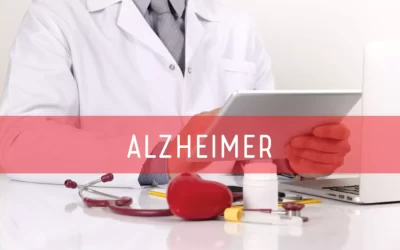

0 Comments